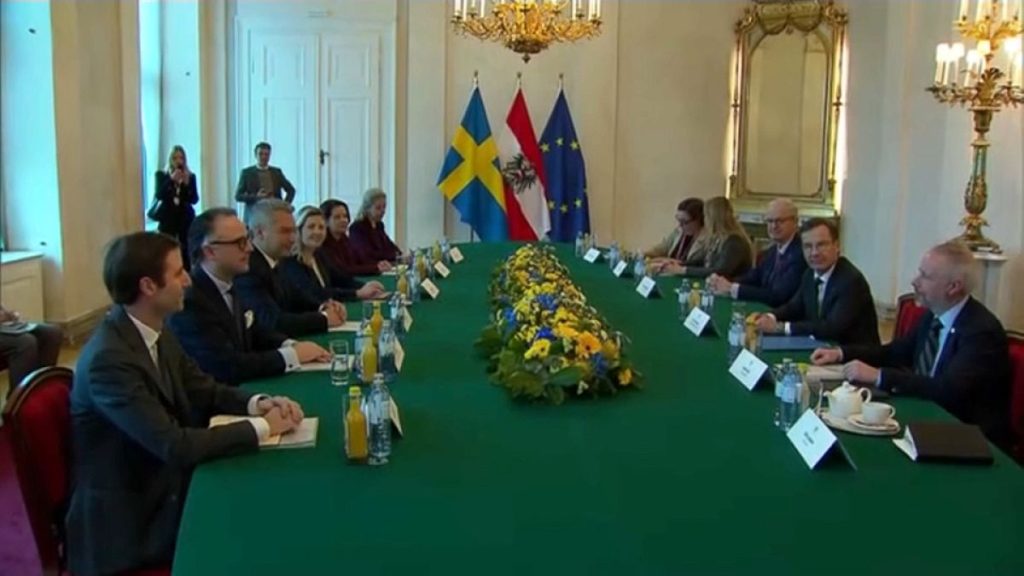The accession of Austria, Sweden, and Finland to the European Union on January 1, 1995, marked a significant turning point in the history of European integration. This enlargement, bringing the total number of member states to fifteen, followed a period of economic downturn in the 1980s and reflected a desire for greater economic stability and access to the EU’s single market. The move also signaled a geopolitical shift, as these historically neutral nations, unaligned during the Cold War, formally integrated with the West after the fall of the Iron Curtain. Their entry, however, was not without its challenges, reflecting the complexities of integrating diverse national interests and political landscapes into the larger European project.
Public opinion in all three applicant countries, as well as in Norway, which also considered joining at the time, was marked by considerable Euroscepticism. Concerns centered around protecting national economic interests, preserving the unique “Nordic model” of social welfare, and navigating the potentially disruptive impact of EU regulations. Negotiations proved particularly difficult in areas such as agriculture, regional aid, budgetary contributions, and fishing quotas, highlighting the inherent tensions between national sovereignty and the requirements of EU membership. The path to accession involved navigating these delicate issues while simultaneously addressing public anxieties about the potential loss of national autonomy.
The democratic traditions of these Nordic and Central European nations dictated that the final decision on EU accession be put to a popular vote. The referendums revealed a mixed picture: while Finland and Austria voted decisively in favor of joining, Sweden offered a more hesitant “yes,” and Norway ultimately rejected membership. This outcome underscored the varying levels of enthusiasm for European integration across the region and the persistent power of national identities in shaping public perceptions of the EU. Norway’s decision to remain outside the bloc serves as a reminder that the appeal of EU membership is not universal, even among countries closely aligned with European values and economic structures.
Twenty-eight years later, in January 2024, Austria and Sweden commemorated their shared EU anniversary, underscoring the enduring significance of their joint decision to embrace European integration. Austrian Chancellor Karl Nehammer hosted Swedish Prime Minister Ulf Kristersson for an official visit in Vienna, marked by military honors and bilateral talks. The occasion provided an opportunity to reflect on the progress achieved since 1995 and to reaffirm the two countries’ commitment to a strong and unified Europe. The choice of the New Year’s Concert as a backdrop for the meeting symbolized the shared cultural heritage that binds European nations together.
The focus of the discussions between Nehammer and Kristersson centered on migration policy, a topic of increasing concern across Europe. Sweden, under Kristersson’s conservative government, has adopted a stricter stance on asylum, reflecting a broader trend towards tighter immigration controls within the EU. Both leaders expressed a shared commitment to strengthening EU border security and improving mechanisms for the return of migrants whose asylum applications are denied. This reflects a growing consensus within the EU on the need for a more robust and coordinated approach to managing migration flows.
Nehammer and Kristersson emphasized their shared resolve to tackle the challenges of illegal migration, highlighting the importance of collaboration and a proactive approach to finding solutions. They characterized their countries as allies in this effort, emphasizing the need for innovative thinking and decisive action, rather than simply acknowledging the complexity of the issue. This reflects a growing sense of urgency within the EU to address migration challenges effectively and to move beyond rhetoric to concrete policy implementation. Their statements signal a commitment to working together within the EU framework to push for reforms that address the concerns of member states while upholding the principles of human rights and international law.

